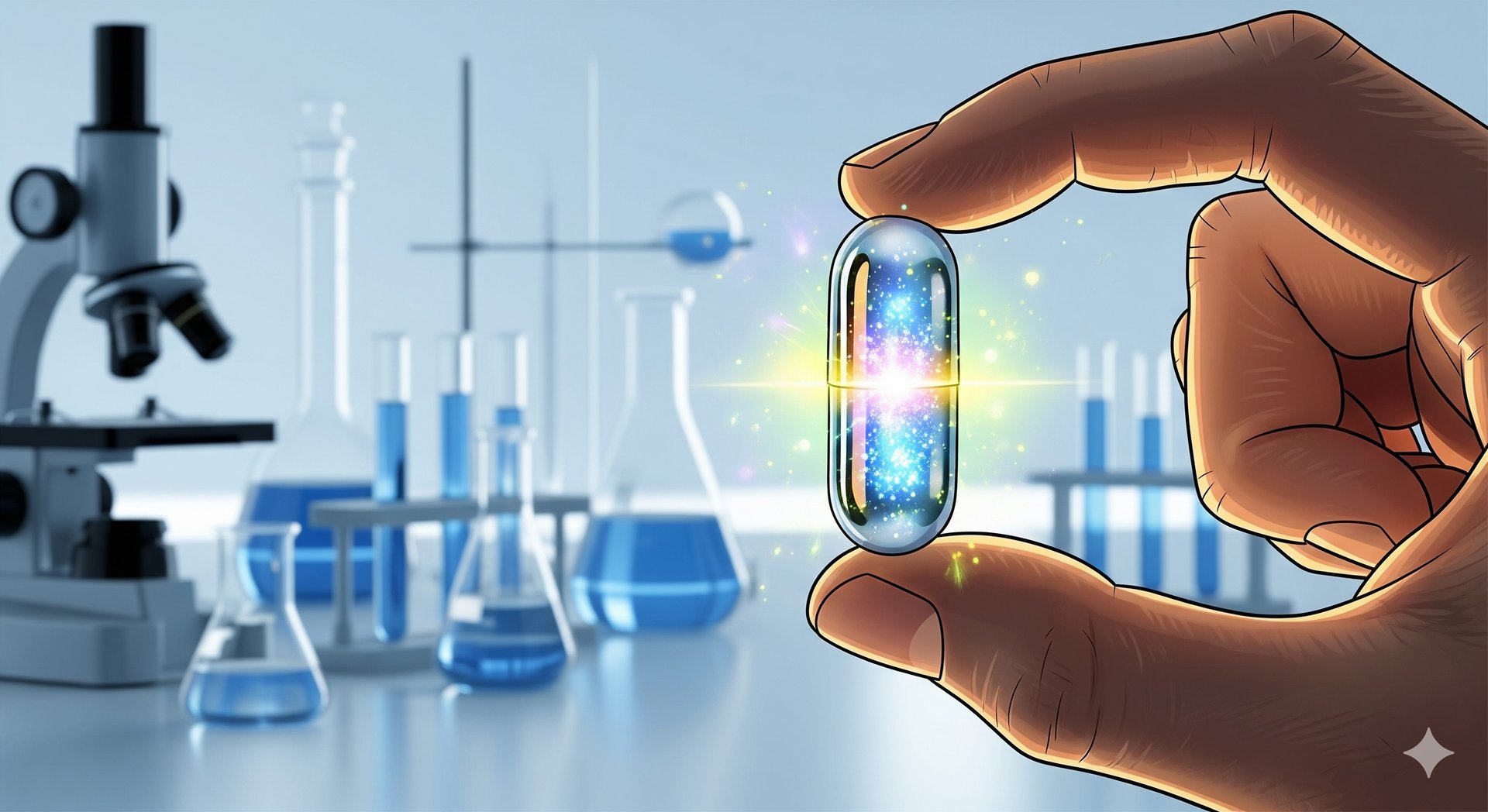Check requirements for Asia's Retirement Visas
The New Science of Anti-Aging Pills: Can They Really Make You Younger?
Uncover the truth behind anti-aging pills. This article explores cutting-edge scientific research on drugs like senolytics and Metformin, distinguishing between the myth of "reversing" age and the reality of extending "healthspan" for a longer, healthier life.
USEFUL MEDICAL KNOWLEDGE
9/15/20254 min read


The Quest for the Fountain of Youth in a Bottle
Have you ever looked in the mirror and felt a pang of nostalgia for your younger self? The boundless energy, the quick recovery from a late night, the smooth skin. We all do. As a kid, I remember watching science fiction movies where characters would pop a pill and instantly feel or look years younger. It was pure fantasy then, but today, with countless supplements and "anti-aging" pills flooding the market, it's easy to wonder if that sci-fi dream is becoming a reality.
The short answer is, no, a pill can't magically reverse your age like in a movie. You won’t wake up looking like your 20-year-old self after taking one. However, the longer, more nuanced answer is much more exciting and is at the heart of some of the most cutting-edge scientific research today. Scientists aren't looking to "reverse" aging in the way we might imagine, but rather to extend our "healthspan"—the period of our lives spent in good health, free from age-related diseases. This is a subtle but profound difference.
So, what are these pills and how do they work?
The science of aging is complex, but researchers have identified several key processes that contribute to it. Think of aging not as a single process, but as a series of interconnected events. Scientists are developing drugs that target these specific "hallmarks" of aging.
Here are a few of the most promising areas of research:
Senolytics: The "Zombie Cell" Killers Imagine your body is a bustling city, and with age, some of its citizens—your cells—become old and dysfunctional. Instead of dying, they hang around, secreting inflammatory chemicals that harm the healthy cells around them. These are "senescent" or "zombie" cells. Senolytics are a class of drugs designed to specifically seek out and destroy these cells. The idea is that by clearing out the junk, you can improve the function of healthy tissues and delay age-related decline. Early human trials have shown that these drugs can reduce the number of senescent cells in the body, with potential benefits for conditions like idiopathic pulmonary fibrosis and even hair graying, according to a recent study from the Mayo Clinic.
Metformin: A Diabetes Drug with a Surprise Talent This is one of the most talked-about drugs in the anti-aging space. Metformin is a safe, widely-used, and inexpensive medication for type 2 diabetes. However, researchers have long observed that people taking metformin tend to have a lower incidence of age-related diseases like cancer and heart disease. A large-scale clinical trial known as the TAME (Targeting Aging with Metformin) trial, with over 3,000 participants, is currently underway to formally test whether metformin can delay the onset of age-related chronic diseases.
NAD+ Boosters: Cellular Energy Catalysts Think of NAD+ as the fuel that powers your cells. As we age, our NAD+ levels naturally decline, which can lead to a decrease in energy production and impaired DNA repair. Supplements like Nicotinamide Riboside (NR) and Nicotinamide Mononucleotide (NMN) are known as NAD+ precursors or boosters. They are designed to replenish these levels. While the human research is still in its early stages, a recent Harvard University and Brigham and Women's Hospital study on Vitamin D (another supplement that influences NAD+ pathways) showed that participants taking the supplement experienced significantly less shortening of telomeres—the protective caps on chromosomes that shorten with age—preventing nearly three years of biological aging. Find out more at: Why Is Everyone Talking About NMN? The Science of This New Longevity Supplement
The important takeaway here is that these aren't "fountain of youth" pills. They are medications in development that, if successful, could help us stay healthy for longer. They target the root causes of aging, rather than just treating the individual diseases that come with it.
What Happens When Your Cells "Eat Themselves"? Taking a more natural path
Autophagy is a quality control mechanism. It kicks in when cells are stressed—typically from nutrient deprivation (fasting) or intense exercise. When activated, it tags damaged components, wraps them in a specialized membrane (the autophagosome), and delivers the package to the cell’s internal waste disposal unit, the lysosome, for degradation and reuse.
Think of it this way: your worn-out laptop battery gets broken down into raw lithium and plastic, which your body then uses to build a brand-new component. This is critical because, as we age, this natural process begins to slow down. Find out more about Autophagy here: Can Autophagy Reverse Aging? A Look at the Science of Cellular Health
It's tempting to want a quick fix, and the market is full of unproven products. My advice is always the same: a healthy diet, regular exercise, and good sleep are still the most powerful "anti-aging" tools you have. But for the first time in history, science is giving us a real glimpse into a future where we don't just live longer, but we live better for all those extra years.
What are your thoughts on this new frontier of medicine? Do you think the focus should be on extending healthspan or on finding a cure for aging itself? Share your opinion below!
Disclaimer: This article is for informational purposes only and is not a substitute for professional medical advice, diagnosis, or treatment. Always seek the advice of a qualified healthcare professional with any questions you may have regarding a medical condition.
Address
Blk 8 Cantonment Close
SIngapore